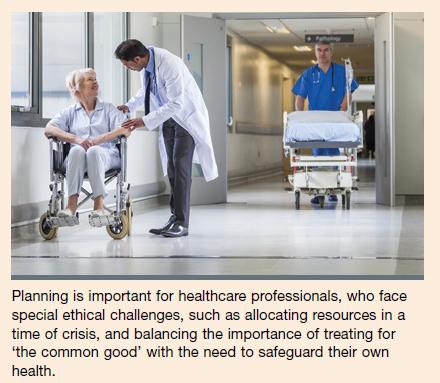Healthcare professionals responsible for planning for influenza pandemics, with complex issues of scale and consequences, face special
Question:
Healthcare professionals responsible for planning for influenza pandemics, with complex issues of scale and consequences, face special ethical challenges. Any plan needs to be assessed in terms of its alignment with competing values and priorities. Planners are required to deal with the necessary limitations on personal liberty imposed by quarantine, and the unavoidable demand to prioritise healthcare resources, such as antiviral drugs, in what would be a time of crisis. Questions of fairness should be discussed beforehand — to determine obligations for providing preventive measures for healthcare workers, other emergency workers, ablebodied adults, the elderly and more vulnerable members of the population.
The ethical standard of treating for ‘the common good’ needs to be debated as to moral value and application in particular situations (such as when an individual healthcare worker refuses to work in a pandemic because of a perceived risk to themselves or their dependants). Guidelines are that any intervention should be both necessary and effective, that decision‐making should be transparent, and that public health officials should be flexible and responsive. This is no easy task, as planners do their work in the midst of ethical examination of scenarios that call into question a broad range of moral issues. It is likely that planning needs to be done with a diversity of inputs.
QUESTION
The ethical dialectic of utilitarianism (‘the greatest good for the greatest number’) and duty to the individual makes planning difficult in the individual healthcare case. Should we plan for the many while treating the individual? Justify your answer.
Step by Step Answer:

Management
ISBN: 9780730329534
6th Asia Pacific Edition
Authors: Schermerhorn, John, Davidson, Paul, Factor, Aharon, Woods, Peter, Simon, Alan, McBarron, Ellen





